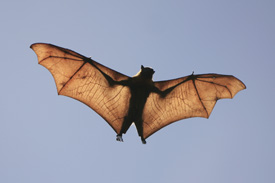
In the spirit of Thanksgiving I bring you some turkey science. Today’s turkeys are genetically all very similar to each other. They have less genetic variation than most other domesticated animals. From Popular Science:
What’s more, the turkeys on our dinner table this week have less genetic variation than both their wild counterparts and other domesticated animals, including pigs and chickens. The lack of variance can be explained by the way Americans like their turkeys–big and huge-breasted. Variation in genes that code for those traits can lead to more scraggly and therefore less appetizing turkeys.
To figure this out, SI scientists sequenced the full genomes of birds from seven different commercial turkey-breeding lines, as well as the genomes of three south Mexican turkeys collected in 1899. Those turkeys’ DNA was extracted at the National Zoo from samples stored in the Smithsonian’s collections. Fleischer said the museum specimens worked surprisingly well. This will help geneticists nail down the genes involved in turkey domestication and enfattening.
